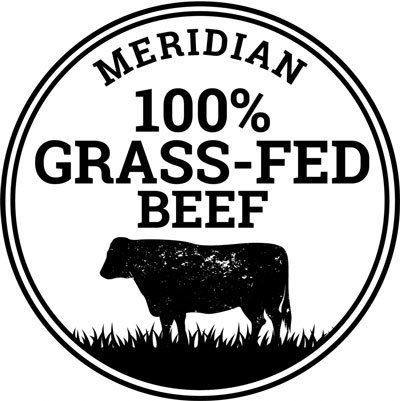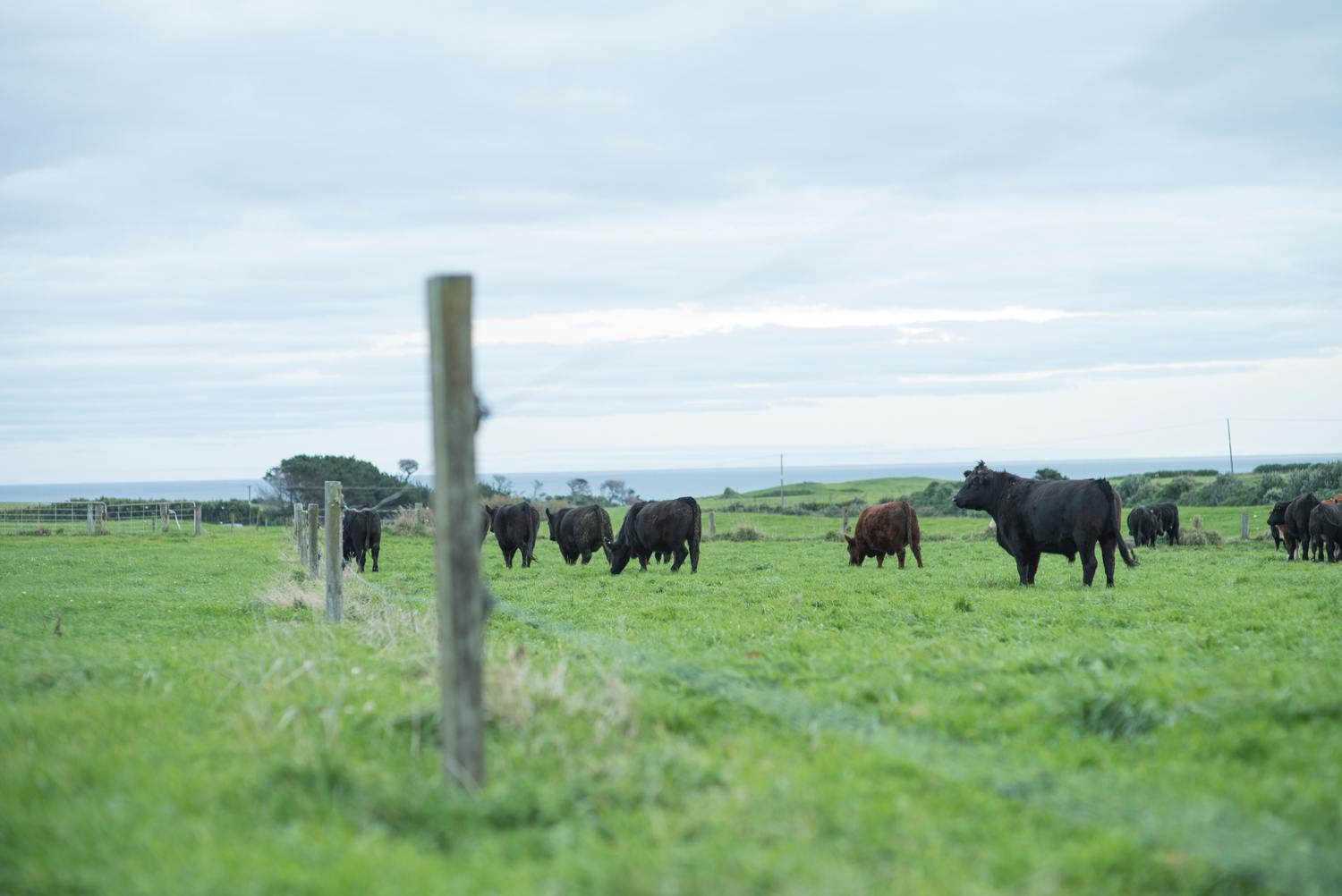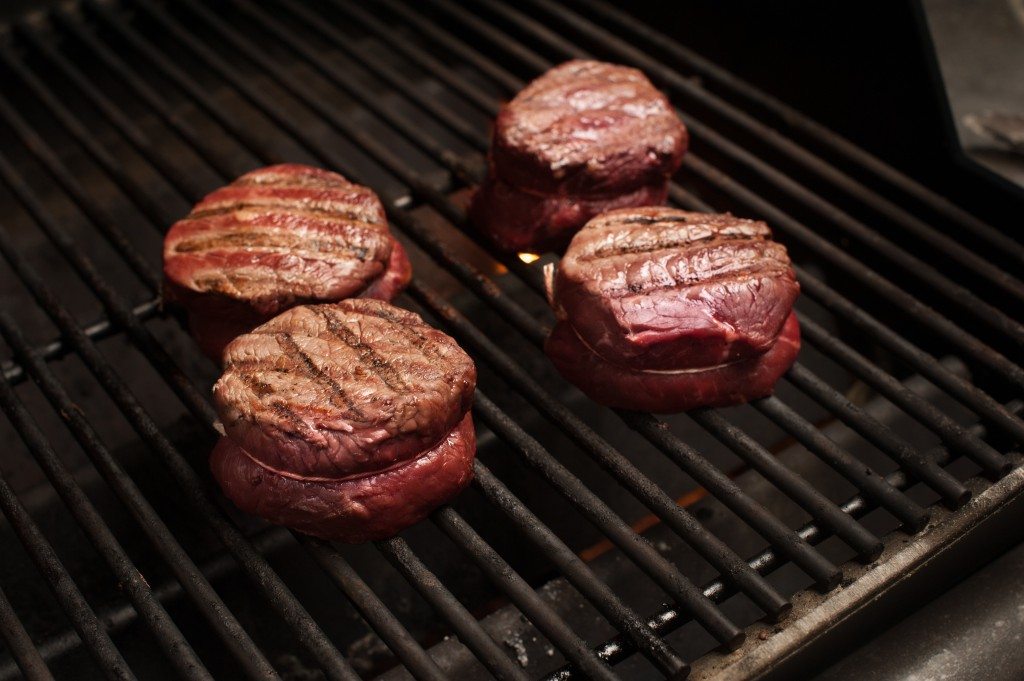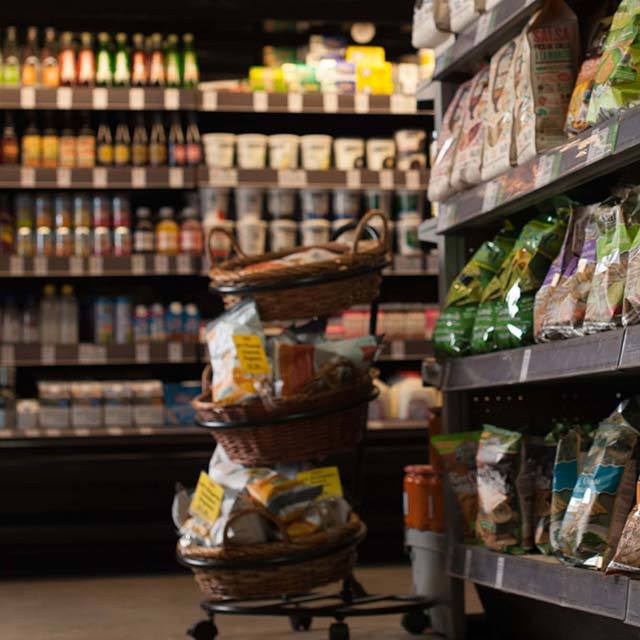Grounds for Enjoyment
Across the globe, two billion cups are consumed every day, and for many people, daily life without it would be nothing short of tragic. This dark, bitter, and aromatic delight is quickly becoming the most popular beverage in the world as traditional-tea-drinking nations welcome in larger cafe chains and discover the pleasure that is coffee. Here's a brief history, some fun facts, and the varieties of Meridian Coffee that our customers love.
Coffee Has Bean Around
While its origins are not entirely confirmed, one story favoured by historians dates back to the 9th century. A goat herder in Ethiopia, or possibly Egypt, noticed the effects that the cherries had on his goats and decided to try it for himself.
From there, the cherries and beans became popular in certain religious groups in Africa and the Middle East as it allowed individuals to pray late into the evening. At that time, possibly the 12th and 13th centuries, it was consumed in a variety of forms—raw, ground up, pastes, etc. As it grew in popularity within spiritual communities, it spread along prayer routes and trading routes throughout the Ottoman Empire where it was eventually discovered by Western traders. Over the next 100 to 200 years, coffee slowly made its way back through the Mediterranean and across Europe.
1652 saw the opening of London's first coffee house which has been described as more of a shed than an actual coffee house. While the taste wasn’t popular at first, people enjoyed the feeling, and were also fond of socializing in coffee houses. Notably, it provided an alternative to pubs for business meetings as patrons were kept awake and alert rather than inebriated and forgetful. Some businesses actually started in coffee houses; well-known insurance company, Lloyds of London, for example, began in Lloyd's Coffee Shop in the 18th century.
The 18th and 19th centuries brought coffee's biggest boom as Europeans exported coffee beans and plants to Asia and South America for mass production. Sadly, it became a driving factor behind slavery in countries like Brazil as merchants and businesses were keen on keeping their costs at the very minimum. This continued for decades until the mid-19th century.
Today, coffee is still a vital part of the economies in Brazil, Colombia, and Vietnam. Modern people care about the coffee source, its unique flavour profile, and of course the physical location in which they are drinking it. This is why coffee houses and cafes have persevered as common meeting places for friends, families, and business associates.
Fun Facts for Keener Beaners
- Arabica coffee bean plants are sensitive and require temperatures of 15-25C and lots of rain.
- Many coffee plantations are located at higher altitudes in order to maintain a moderate temperature while taking advantage of heavy rainfall.
- On average, it can take two and a half years until a crop is ready for its first harvest.
- Plants only produce full cherries every two years after their initial harvest.
- Starbucks opened in Beijing in 1999 and has been expanding across the nation since, threatening to replace tea as the beverage of choice in China.
- The USA consumes 20% of the coffee in the world.
- Germany consumes 11%.
- Asia consumes 10%.
- The farming and production of coffee supports more than 120 million people worldwide.
Rise and Grind with an Inviting Cup of Meridian Coffee
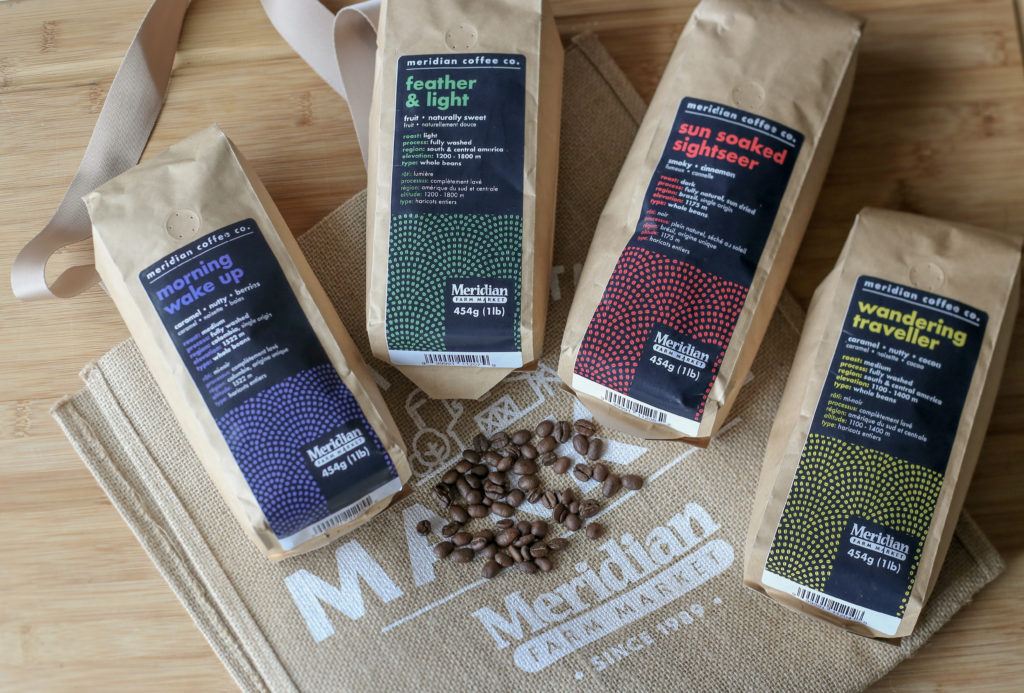
Feather and Light
- Profile: fruit, naturally sweet
- Roast: light
- Process: fully washed
- Region: South and Central America
- Elevation: 1200m-1800m
- Type: whole beans
Morning Wake Up
- Profile: caramel, nutty, berries
- Roast: medium
- Process: fully washed
- Region: Colombia, single sourced
- Elevation: 1522m
- Type: whole beans
Wandering Traveller
- Profile: caramel, nutty, cocoa
- Roast: medium
- Process: fully washed
- Region: South and Central America
- Elevation: 1100m-1400m
- Type: whole beans
Sun Soaked Sightseer
- Profile: smoky, cinnamon
- Roast: dark
- Process: fully natural, sun dried
- Region: Brazil, single origin
- Elevation: 1175m
- Type: whole beans
Anytime Decaf
- Profile: orange, nutty, milk chocolate
- Roast: medium
- Process: naturally processed decaf
- Region: South and Central America
- Elevation: 1600m
- Type: whole beans
photos by Markayting Creative

